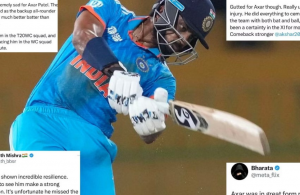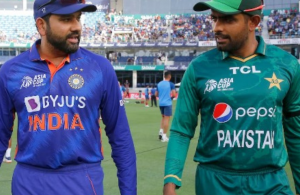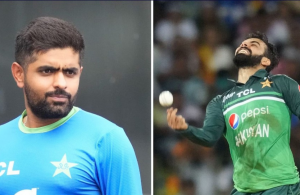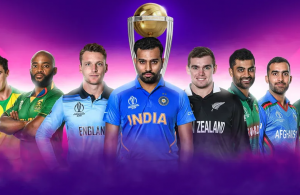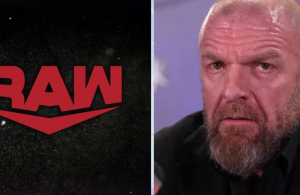- Molly O’Callaghan, a 19-year-old swimmer from Australia, etched her name in the annals of swimming history with a remarkable performance in the Women’s 200m Freestyle event
- Akshay Bhatia, 21, Wins his First PGA Tour Title at the Barracuda Championship
- Bruno Fernandes Replaces Harry Maguire as New Man Utd Captain
- Lionel Messi Surprises Teammate in group chat ahead of Grand Unveiling
- Man Utd Sign Keeper Andre Onana from Inter
After chat goof-up, Yuvraj apologizes for casteist slur
- Updated: June 6, 2020
- 1182
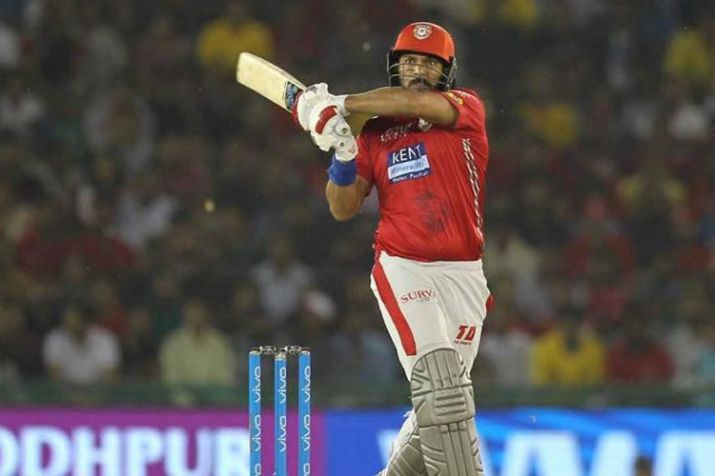
Former India cricketer Yuvraj Singh posted a message on his Twitter account on Friday, apologizing for a comment he made on a live Instagram video chat with India opener Rohit Sharma that drew flak from critics who saw it as a casteist slur.
“This is to clarify that I have never believed in any kind of disparity, be it on the basis of caste, colour, creed or gender. I have given and continue to spend my life for the welfare of people,” read his message.
“I understand that while I was having a conversation with my friends, I was misunderstood, which was unwarranted. However, as a responsible Indian I want to say that if I have unintentionally hurt anybody’s sentiments or feelings, I would like to express regret for the same,” Singh wrote in his message.
Singh’s conversation with Sharma took place last month and was followed by many cricket fans across the country. On India leg spinner Yuzvendra Chahal, Singh said, “Yeh bhangi logo ko koi kaam nahi hai, Yuzi (Yuzvendra) ko.”
The comment was supposed to be in jest, a reference to Chahal’s social media antics, but the use of the term bhangi, a slur used against the Valmiki community, didn’t exactly amuse people. Yuvraj couldn’t be reached for comment.
At the time he made the comment, not many seemed to have noticed Singh’s use of the term. When some social media users highlighted that part of the conversation, many demanded an apology from Singh. It led to a Twitter trend in India – “Yuvraj Singh maafi mango” (Yuvraj Singh, apologise).
To be sure, this is not the first time a celebrity has come under fire for using a casteist slur. In 2017, Bollywood actors Salman Khan and Shilpa Shetty drew public ire for similar remarks – the former described his dancing style as that of a ‘bhangi’, and the latter used the word to describe how she looked like at home.
Another Bollywood star, Sonakshi Sinha, used the term during a radio interaction in July last year. She apologized after being called out.
Bezwada Wilson, a social activist and co-founder of the Safai Karmachari Andolan (SKA), a movement dedicated to the eradication of manual scavenging, said the use of these terms has to do with a lack of awareness about caste.
“The term ‘bhangi’ earlier was not specifically a caste but people who used to clean toilets,” Wilson said. “Cleaning human excreta is not only seen as derogatory, but there is also the issue of untouchability. Since many were involved in manual scavenging, they were called ‘bhangis’. And it gradually became a derogatory term. I have myself been called ‘bhangi’ in the past. People don’t realise how problematic it is to use this term.
The judiciary has also in the past tried to clamp down on the use of casteist slurs.
In 2008, the Supreme Court had said using the term ‘chamar’ may be seen as a punishable offence under the Scheduled Castes and the Scheduled Tribes (Prevention of Atrocities) Act, 1989.
The apex court in 2017, while setting aside a Patna High Court decision to grant anticipatory bail to an accused facing charges under Section 3(1) of the SC/ST Act, also noted that use of casteist slurs like ‘harijan’ and ‘dhobi’ count as offensive language.
“The problem is people who use these slurs are not respectful of these particular forms of labour,” said Kancha Ilaiah Shepherd, a writer, academic and Dalit rights activist. “And we don’t debate the caste system enough. Many Indian- Americans, for example, are supporting the Black Lives Matter movement in the US.
“But they would never say anything about the Dalit movement here. What he (Yuvraj) said was wrong and it’s good that he apologised. But let this debate go on,” he added.
Source: HT


